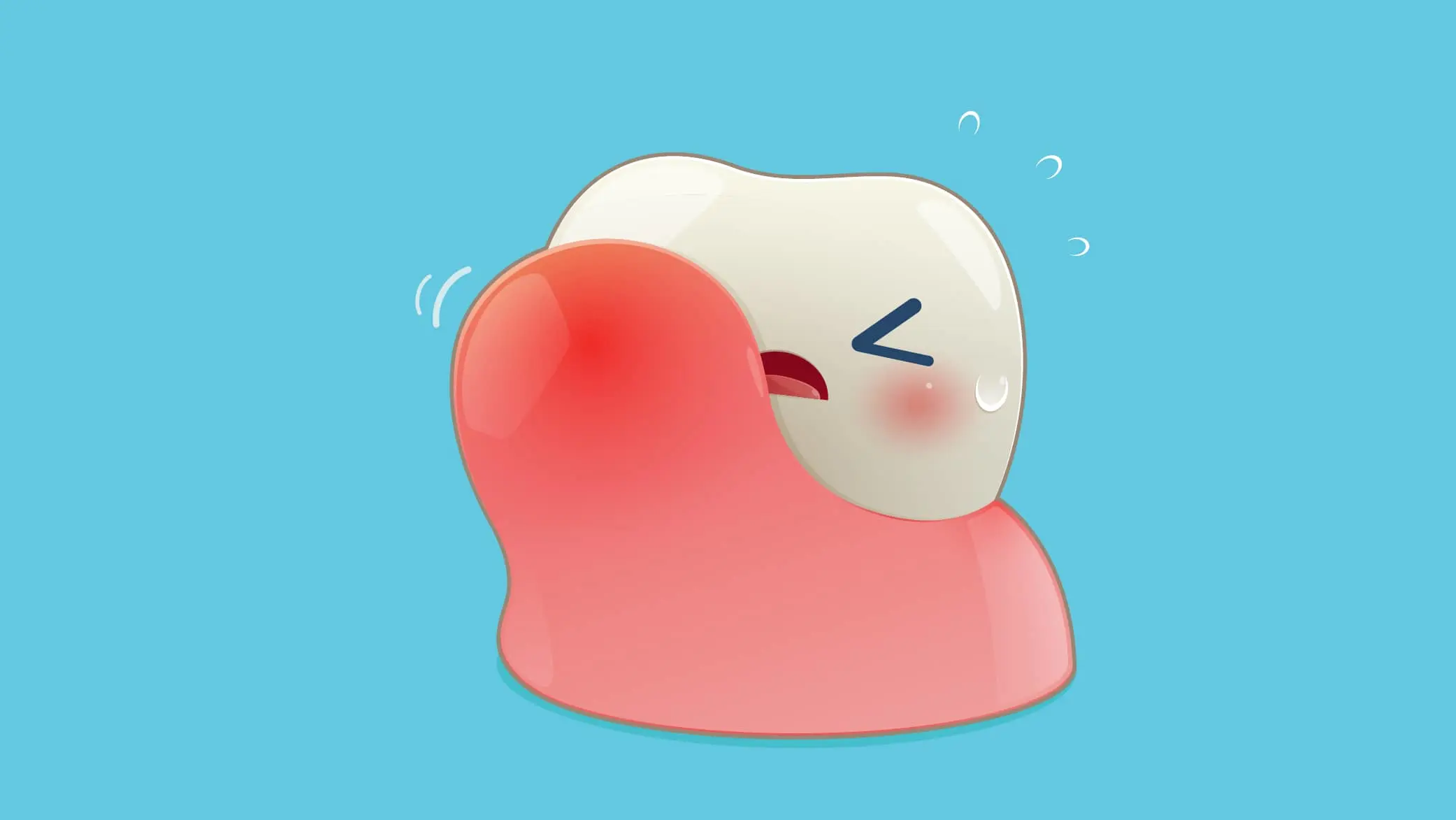The health of your gums is crucial to your oral hygiene. Your jawbone is protected by tough, pink tissue called the gums. The gums are formed of a dense tissue that is protected by the oral mucosa, a mucous membrane that keeps the mouth clean and guards it from pathogens and damage.
Your gums may protrude or bulge out if they swell up. Where the gum and tooth connect is typically where gum swelling starts. Yet, your gums could swell to the point where they start to partially obscure your teeth. Gums that are swollen appear red rather than their natural pink tone1.
Gum swelling, also known as gingival edema, is frequently a source of irritation, sensitivity, or pain. Also, you could discover that when you clean or floss your teeth, your gums seem to bleed more readily.
What causes swollen gums?
Although gingivitis is frequently the cause of swollen gums, other conditions such as pregnancy, malnutrition, or certain infections can also play a role.
Gingivitis
The most frequent cause of swollen gums is gingivitis. Your gums will itch and swell as a result of gum disease2. Because the symptoms of gingivitis can be fairly mild, many people are unaware that they have it. Gingivitis, however, can eventually result in periodontitis, a far more serious condition, and even tooth loss if it is not treated.
Most frequently, poor dental hygiene leads to gingivitis by allowing plaque to accumulate on teeth and gums. Plaque is a film consisting of germs and food particles produced on the teeth over time. Tartar develops if plaque is left on the teeth for a longer period of time. Plaque that has hardened into tartar cannot be eliminated by brushing and flossing alone.
Pregnancy
Pregnancy might also cause swollen gums. Your body may create more hormones during pregnancy, which could result in an increase in gum blood flow. Your gums may be more susceptible to irritation due to this increase in blood flow, which could result in swelling. The ability of your body to fight off the bacteria that normally cause gum infections can also be hampered by these hormonal changes. This could make gingivitis more likely to develop.
Malnutrition
Vitamin deficiencies, particularly those in vitamins B and C, can result in gum swelling3. For instance, vitamin C is crucial for maintaining and repairing your teeth and gums. You could get scurvy if your vitamin C levels drop too low. Anemia and gum disease can be brought on by scurvy.
Infection
Swollen gums may be a symptom of viral and fungal infections. Acute herpetic gingivostomatitis, which results in swollen gums, can be brought on by herpes. Gum swelling can also develop from thrush, which is brought on by an overabundance of naturally occurring yeast in the mouth4. Dental decay that is left untreated can result in a dental abscess, a localized gum infection that needs to be treated by a dentist.
What are the potential treatments for swollen gums?
If you have swollen gums, it is best to talk to a dentist. Your dentist will enquire as to when your symptoms started and how frequently they recur. Complete dental care to check for bone loss, X-rays might be required. Also, your dentist might ask whether you're expecting and if your diet has changed recently. To look for an infection, blood testing may be required. Depending on the reason for your sore gums, a doctor may recommend medical rinses or antibiotics. If your gingivitis is severe, surgery might be necessary. This is typically only advised for people who have moderate to advanced periodontitis and later stages of gum disease5.
Scaling and root planning is a typical kind of therapy. In order to promote healing of the remaining gums, the dentist must remove tartar, calculus, and unhealthy gum tissue from the tooth roots.
To ensure that the treatment process is seamless, it is imperative that inflamed gums are handled with great caution and care. Here are some pointers for at-home care:
Brush and floss your teeth lightly to avoid irritating your gums.
Use trusted mouthwash twice a day, such as Listerine, to get rid of bacteria
Get plenty of water, which will aid in increasing salivation, which weakens disease-causing germs in the mouth.
Avoid irritants, including smoke and alcohol.
How can swollen gums be prevented?
Prevention remains key in ensuring that you do not struggle with swollen gums. You can take certain preventative steps to avoid swollen gums, such as keeping good oral hygiene and adhering to a balanced diet.
Regularly brush, floss and use mouthwash, especially after meals. See the dentist for a cleaning every six months, and be sure to mention any other symptoms you may be having. For instance, having dry mouth, a problem that is sometimes brought on by particular medical conditions or drugs, might increase the likelihood of developing plaque and tartar.
Keep in mind that it is essential to invest in oral hygiene products that provide preventative care, such as Listerine.
To sum up, swollen gums are common and can be treated early on. Hence, seeing your dentist for a thorough examination, a diagnosis, and a suggested course of action is recommended if the swelling persists for more than a week. To play things safe, make sure that your oral hygiene is one of your top priorities, so take some time with your dental care routine every morning by brushing, flossing, and using mouthwash twice a day.
